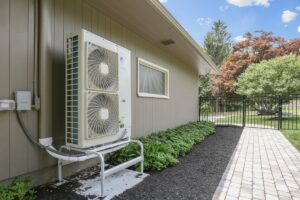The Future of Home Heating – How Heat Pumps Are Leading the Efficiency Revolution
The future of home heating is poised for a revolution, driven by the increasing adoption of heat pumps. As the world grapples with climate change and the urgent need to reduce carbon emissions, heat pumps are emerging as a cornerstone of energy-efficient and sustainable heating solutions. These devices, which transfer heat from the air, ground, or water into homes, are rapidly gaining popularity for their superior efficiency, lower operational costs, and environmental benefits compared to traditional heating systems. At the heart of the heat pump’s efficiency is its ability to move heat rather than generate it by burning fuel. Traditional heating systems, such as furnaces and boilers, typically operate at around 80-90% efficiency, meaning they convert 80-90% of the energy in their fuel into usable heat. In contrast, heat pumps can achieve efficiencies of 300-400%, as they only use electricity to transfer existing heat. This remarkable efficiency translates into significant energy savings and reduced utility bills for homeowners. Moreover, the electricity used by heat pumps can be sourced from renewable energy, further minimizing their carbon footprint.

The versatility of heat pump efficiency chart is another factor contributing to their growing adoption. They are available in various configurations, including air-source, ground-source, and water-source systems, making them suitable for different climates and geographical locations. Air-source heat pumps, the most common type, extract heat from the outside air and are effective even in cold climates. Ground-source heat pumps, also known as geothermal heat pumps, leverage the stable temperatures underground to provide heating and cooling, offering unmatched efficiency and reliability. Water-source heat pumps, though less common, draw heat from nearby water bodies, providing another efficient option for specific settings. In addition to heating, heat pumps can also provide cooling, making them a year-round solution for home climate control. During warmer months, the heat pump can reverse its operation to remove heat from the indoor air and release it outside, functioning as an air conditioner. This dual functionality not only enhances comfort throughout the year but also eliminates the need for separate heating and cooling systems, reducing installation and maintenance costs.
By reducing reliance on fossil fuels and lowering greenhouse gas emissions, heat pumps play a crucial role in the transition to a more sustainable energy system. Governments and policymakers are recognizing these benefits and are increasingly offering incentives and rebates to encourage the adoption of heat pumps and get more info in this website www.jnodenergy.com. For instance, many countries provide financial support for homeowners who switch from traditional heating systems to heat pumps, making the upfront investment more affordable. Despite their numerous advantages, heat pumps are not without challenges. The initial installation cost can be higher than that of conventional heating systems, and their performance can be influenced by local climate conditions. However, technological advancements and economies of scale are driving down costs and improving efficiency, making heat pumps an increasingly viable option for a broader range of households. In conclusion, heat pumps are at the forefront of the efficiency revolution in home heating. Their unparalleled energy efficiency, versatility, environmental benefits, and the growing support from governments and policymakers position them as a key technology in the pursuit of sustainable and cost-effective home heating solutions.
